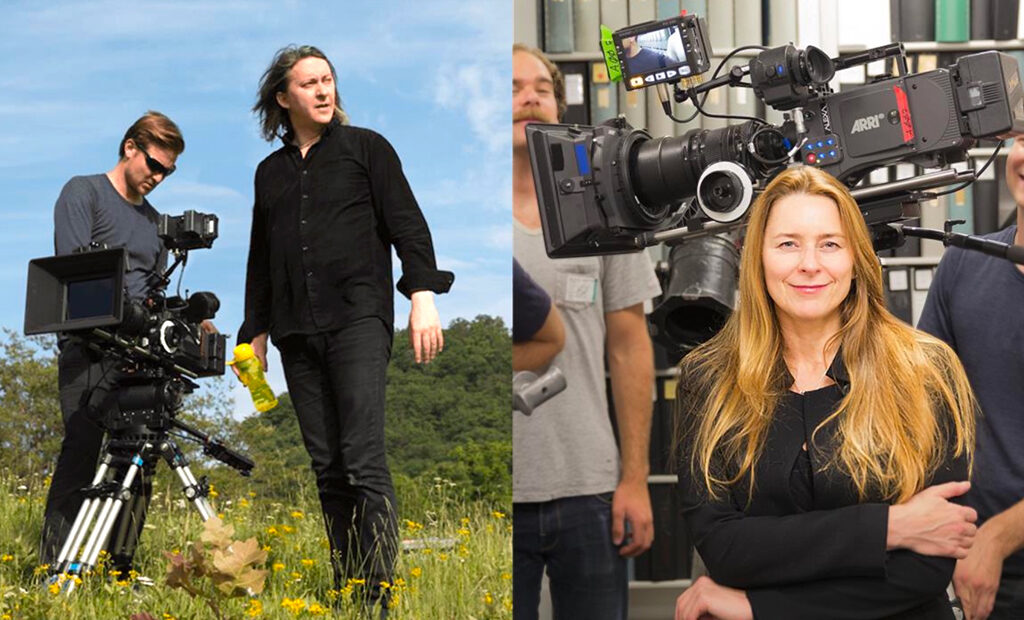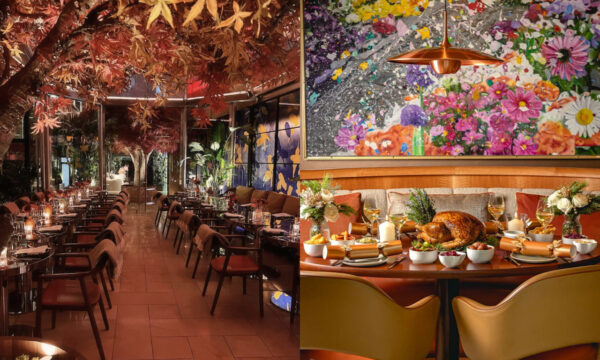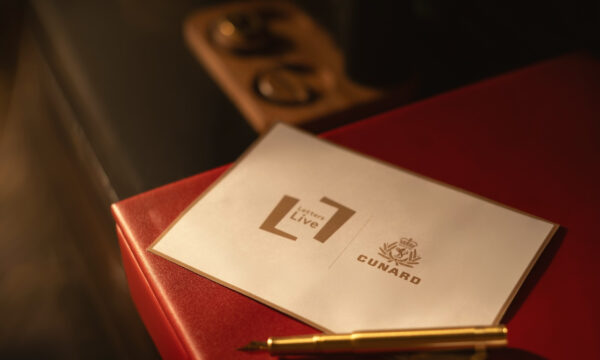“Robert Plant told me it is important to capture the freneticism of that first year”: Bernard MacMahon and Allison McGourty on Becoming Led Zeppelin

Becoming Led Zeppelin is a film that no one thought could ever be made. The band’s meteoric rise to stardom was swift and virtually undocumented. With unparalleled access to the group and their personal archives, their full support and never-before-seen footage, Becoming Led Zeppelin will immerse its viewers in the sights and sounds of their early career. For all the millions of people who will never see the band live, this is as close as they will get to being there.
Before the stairway and the dragon, before the gold and the girls, there were simply four men and their love of music. The documentary reveals their individual journeys as they move through the music scene of the 1960s, playing small clubs throughout Britain and performing on some of the biggest hits of the era, until their meeting in the summer of 1968 for a rehearsal that changes their lives forever. Their four journeys merge into one as they set out to conquer America on a rollercoaster ride that culminates in 1970 when they become the number one band in the world.
Here’s an interview with director Bernard MacMahon and writer/producer Allison McGourty.
How did you have the idea for the film?
Bernard MacMahon: Our previous film American Epic explored the advent of electrical sound recording in the 1920s and its effect on free expression across all the ethnic groups of America. We wanted to make one more music film and were looking for the next point in music history where there was a seismic cultural and technological leap. We realised it was 1969 and at the centre of that hurricane is Led Zeppelin.
How did you prepare for making the film?
Allison McGourty: Bernard was very familiar with the band already and he immersed himself deep into researching each member’s early history which is fascinating and very complex. These are four very different and interesting individuals, most of whom didn’t know each other before their first rehearsal, so it was the depth of their collective experience prior to forming the band which made it work. To understand how the group became so extraordinarily successful we had to exactly understand how they got there. So, we literally sat down and wrote a script.
That’s unusual for a documentary?
BM: The process of making this film was much closer to that of a feature film than a documentary. Allison and I wrote the first draft of the script sailing on a cruise ship through the Caribbean with our friends Taj Mahal and Bettye LaVette. We told the story from their childhood through to 1970 when they become the biggest band in the world. To tell that powerfully is a full length feature film in itself. When we got back on land we storyboarded the entire film with our editor Dan Gitlin and bound it in a heavy leather book the size of a paving stone.
Had you spoken to the band?
AM: We did all that preparation without telling a soul because we wanted to be sure it would work on screen before we presented it. Then we flew to London and met with Jimmy then John Paul and then Robert and Pat Bonham. We knew the band had turned down countless documentary offers for fifty years but we believed in the higher purpose of the story that we were planning to tell.
Were the band sceptical?
BM: The band were big admirers of American Epic which was a wonderful start. And they were very enthusiastic about the storyboard. That said, they did caution us that they were concerned there was not enough archive from the early period to make a movie. Well, we had done a lot of research already and unearthed some extraordinary clips, so we had faith that it might be possible. You have to have belief in these endeavours. Miraculously, the finished film you see on the big screen is an exact replica of that very first storyboard we presented to them at our first meetings.
What was the band’s involvement?
AM: “The film was made with the full enthusiastic support of the group and they all opened up their personal archives to us. To their credit they agreed that this should be an entirely independent production, with no editorial control from either themselves, their record label, or any studio. And that the film would be completed then sold after the Venice Film Festival.”
How did you interview them?
BM: The interview shoot took place in August 2018. We interviewed them all in the same house on the very same week that they had first met exactly fifty years prior. One of our biggest challenges was to give their drummer John Bonham an equal voice in the film because he virtually never did interviews and most Led Zeppelin fans have never heard him speak. But we mounted a search around the globe and unearthed an extraordinary 1⁄4” tape with him beautifully recorded and speaking extremely candidly. It was very emotional for the band members to hear his voice again for the first time in 40 years. His family also had unseen film footage which put him right there in the room with his bandmates. I wanted the audience to feel as if they had been invited to this old English house where these men were going to sit down with you and tell you their story for the first time in 50 years.
What were the challenges with archive?
BM: This is a music film so you also tell the story through sound. We want you to feel the musical shifts from when they first start playing as teenagers to when they begin selling millions of records as Led Zeppelin. For this film the audio was just as important as the visuals. To achieve the sound we felt was necessary for this film to transport the viewers back to this period, we searched the globe to find the first best original sources of these recordings. The singles that the band worked on before forming Led Zeppelin were all transferred by our sound engineer Nick Bergh. For the band’s music, Nick re-transferred each live performance from the original master source tapes and from the original lacquer cuts of the albums. We were absolutely pure in the transfer process, to give the viewer the experience of listening to these songs exactly as they would have sounded the day they were recorded.
AM: Bernard and I literally scoured attics, basements and vaults from the New Forest in the south of England, to Paris, Berlin, Tokyo, Australia and all across the United States in our never-ending quest for rare and unseen footage and photographs. In the end, we used almost every single clip that we found from that era.
What were your goals for the film?
BM: “With Becoming Led Zeppelin my goal was to make a new form of film, a documentary that resembles a musical. I wanted to weave together the four diverse stories of the band members before and after they formed their group with large sections of their story advanced with only music and imagery and to contextualise the music with the locations where it was created and the world events that inspired it. I used only original prints and negatives, with over 70,000 frames of footage manually restored, and devised fantasia sequences, inspired by Singin’ In The Rain, layering unseen performance footage with montages of posters, tickets and travel to create a visual sense of the freneticism of their early career.”
AM: “The objective of the film is for the viewer to have a profound musical and visual experience. All the archive was scanned at 4k and we went to extraordinary lengths to track down original negatives and prints whilst staying true to the specifics of each scene we were illustrating. This was quite a challenge, especially as all of the archival footage was shot over 50 years ago and some of it was never intended to be screened publicly. This left us with a massive restoration project on the archival footage which was executed frame by frame manually by the film’s brilliant editor Dan Gitlin.”
BM: The other goal was for the film to have a higher purpose. We saw in this, a story of apprenticeship. An inspiration, hopefully, for any young man or woman setting out in life with an ambition they hope to achieve. We saw the film as a series of life-lessons from four very different people on how to achieve your dreams though dedication to your craft, hard work and perseverance.
Any last thoughts?
AM: Robert Plant told me early on, “it is important to capture the freneticism of that first year”, and so I wanted the audience to leave the theatre feeling like they have been swept along with the band on this roller coaster journey.
The editorial unit
Photos: Courtesy of Bernard MacMahon and Allison McGourty

























Facebook
Twitter
Instagram
YouTube
RSS